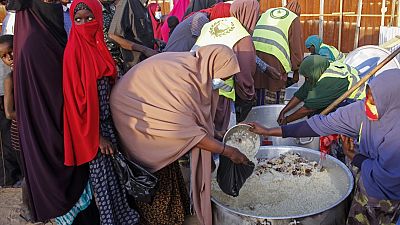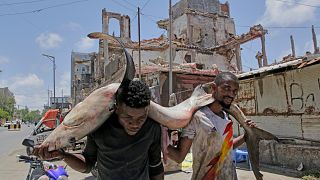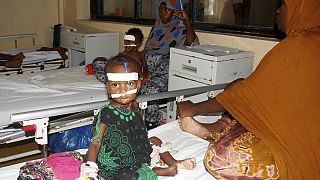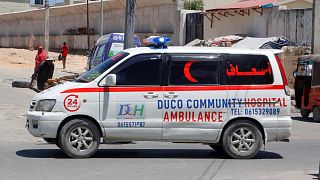Somalia
Russia's invasion of Ukraine has exacerbated food shortages in many parts of Africa and the Middle East and forced Muslim's preparations for the holy month of Ramadan to turn to more frugal iftar sunset meals.
In Somalia, Muslims who traditionally break a dawn-to-dusk fast with lavish family meals are now struggling to secure even the most basic staples in light of skyrocketing food and fuel prices.
Russia and Ukraine, with vast grain-growing regions that are among the world's main breadbaskets, account for a huge share of the globe's exports in several major commodities such as wheat, vegetable oil and corn.
The disruption in exports has spurred fears of a global hunger crisis, especially across the Middle East and Africa, where the knock-on effects are already playing out.
Somalia, which is grappling with an Islamist insurgency and its worst drought in 40 years, is also gearing up for a grim Ramadan as rising prices slash the purchasing power of the 15-million strong population.
"The country’s past civil war, political crisis, election delays, recurrent droughts and rising food prices can negatively impact the people during the holy month of Ramadan," explains Mogadishu resident, Adla Nur. "This Ramadan will be very different fuel and food prices are skyrocketing."
Food donation drops
For another resident, Gallad Mohamed Hassan, the Russia and Ukraine war has badly affected the economy, in particular, imported goods whether it is fuel or foodstuffs.
"In regard to transportation, drivers charge more as fuel prices are high and food prices also went up," says Hassan. Across the country, the population is resigned to spending a more sombre Ramadan.
Food donations, a common custom during the holy month, have dropped to a trickle, with former benefactors now struggling to source basics for themselves.
"The country faces high inflation, which is now close to reaching a hundred per cent increase," says economic analyst, Dr Shafi’i Sharif Mohamed. "For example, if your monthly expenditure used to be $100 last year, now you need $200 to live or survive. Rent, food fuel and thus transportation prices have increased. That has a bad effect on people’s lives."
Ramadan is due to start in the next few days and will end with the feast of Eid al-Fitr.












01:45
From Uganda to NYC: Zohran Mamdani's rise in American politics
00:54
Kaaba’s sacred cover replaced ahead of islamic new year
02:09
In a bid to aid its economy, Lebanon hopes to return to golden age of tourism
01:17
Kenyan Muslims pray for Gaza as they celebrate Eid Al-Adha
01:21
Scorching heat challenges pilgrims at mount Arafat during sacred Hajj ritual
01:11
Muslims mark Day of Arafat on the second day of Hadj in Saudi Arabia